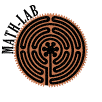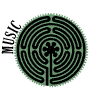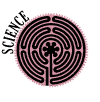“Whether you succeed or not is irrelevant, there is no such thing. Making your unknown known is the important thing and keeping the unknown always beyond you.” ~Georgia O’Keeffe
“Astride of a grave and a difficult birth. Down in the hole, lingeringly, the grave digger puts on the forceps. We have time to grow old. The air is full of our cries. But habit is a great deadener. At me too someone is looking, of me too someone is saying, He is sleeping, he knows nothing, let him sleep on.” ~Samuel Beckett, Waiting for Godot
“Two men are riding a commuter train. One is, as the expression goes, fat, dumb, and happy. Though he lives the most meaningless sort of life, a trivial routine of meals, work, gossip, television, and sleep, he nevertheless feels quite content with himself and is at home in the world. The other commuter, who lives the same kind of life, feels quite lost to himself. He knows that something is dreadfully wrong. More than that, he is in anxiety; he suffers acutely, yet he does not know why. What is wrong? Does he not have all the goods of life?” ~Walker Percy, The Message in the Bottle
A man wakes one morning half buried in a mound of sand and damp rotting kelp. His head feels like someone is using a sledgehammer to try to get out. He must have gotten very drunk the night before. . . because he can’t remember the night before. Wiping the crusted sand from his eyes, he sees only sand dunes to the horizon, broken by patches of cord grass slow-dancing in the morning breeze. As he sinks again into delirium, he realizes his mouth doesn’t taste of rancid beer, but like an arid and empty salt cellar.
He wakes in a hospital bed with wires and IV tubes running in all directions. A young intern in scrubs and lab coat is shining a very painful beam of light in his eyes when she notices he’s awake. Welcoming him (somewhat too brightly) back to the land of the living, she asks how he ended up on so remote a beach. He opens his mouth to respond and is struck dumb by a jolt of anxiety. Not only can’t he remember the previous night, he can’t remember any nights or days before this one, he can’t even remember his name. The young intern calls the attending who orders a battery of tests on the nameless man. After the best island minds review the results, they diagnose him with an extreme case of retrograde amnesia.
Back in his room, the young intern tells him not to worry; this sort of condition usually resolves itself in a few days, or a week at most. She prescribes rest, relaxation, and plenty of fluids. Having no other recourse, he decides to follow her advice. The first day and night he just sleeps; but every succeeding afternoon he walks in the hospital’s rose garden (clearly, it’s a very nice hospital) and in the evenings he reads books from the hospital’s library (refer to previous parenthetic). He discovers that although he can’t remember last week, he has near perfect recall of the chapters he read last night. Aside from the pesky amnesia thing, his memory seems to be working perfectly.Sadly, afull week’s recuperation brings no resolution to his predicament and, to add insult to injury, the local authorities can only confirm that he is not listed in any island record, and no one has reported a missing person.
“ …however he chooses to exist, he is in the last analysis a castaway, a stranger who is in the world but who is not at home in the world. ~Message
Over the next few days, our castaway sinks into a state of despondent hopelessness. He even considers suicide; but by fate or chance, his young intern finds him both mysterious and exotic and decides to take on his rehabilitation as a personal challenge (it’s also possible there’s an added incentive to do a Pygmalion on the mystery man and mold a future husband completely from scratch . . . but that’s only a crude misogynistic speculation). Enthused by her new task, she calls her uncle, who owns a fish-packing concern on the island docks. He’s thrilled to hire another young buck for the warehouse. The backbreaking work is—therapeutically—just what the doctor ordered; but she senses he’s capable of more, and so encourages him to enroll in night classes at Island U. By the time he’s finished his undergraduate degree she’s completed her residency, and they become engaged. When he finishes his law degree three years later, they marry. The MD opens her own practice, and the JD establishes his own firm.
The next few decades are good to the island couple. Their family grows from two to five (seven if you count the Golden Doodle puppy and the Ragdoll kitten). They invest shrewdly and eventually buy the worst property in the most desirable neighborhood, which they spend the next five years lovingly remodeling. They send their kids to the most elite private school, they attend the opera every third Saturday, and they sleep in on Sundays. By every gauge of objective social assessment, they have a perfect life. The story should end here with “happily ever after.”
“Yet even so all is not well with him. Something is wrong. For with all the knowledge he achieves, all his art and philosophy, all the island news he pays attention to, something is missing. What is it? He does not know. He might say that he was homesick except that the island is his home and he has spent his life making himself at home here. He knows only that the sickness cannot be cured by island knowledge or by island news.” ~Message
For several months, the man has been waking during the still, lonely hours of the night in the throes of free-floating anxiety. Since he can identify no particular stressors in his life, the cause eludes him. He hesitates to tell his wife because he assumes it will pass soon enough and doesn’t want to worry her. At his law office, his casework has become tedious and repetitive. His mind drifts oftener and oftener to a hazy image of sand dunes and cordgrass waving in a warm morning breeze. When the night torments don’t resolve but increase in frequency, he finally tells his wife. She suggests (sympathetically) that he’s describing the symptoms of a midlife crisis, and that she knows the best psychiatrist on the island.
He begins weekly sessions where he lays on couch for an hour staring at the ceiling and saying whatever comes to mind. Since he has no recollection of childhood traumas, and he loves his wife and children very much, the only thing that keeps coming to his mind is that obscure image of rolling sand dunes and cordgrass. After two months of this, the psychiatrist (in a moment of wisdom uncommon in run-of-the-mill shrinks) suggests he take a field trip to the beach to see if that brings him any insights.
When he tells his wife, she recalls that when he was brought to the hospital those many years ago, he had been found washed up on a beach, delirious and dehydrated. She accesses the old hospital records on her laptop and tells him the exact spot where the EMTs found him. The following afternoon, he climbs into his high-end SUV, drives to the public parking nearest his destination, and hikes the remaining quarter mile or so to the very spot of his unremembered arrival. As he trudges over the last crest of dunes, his shoes now full of sand, he catches his first glimpse of the vast hungry sea. At that moment, the horizon seems to close in, and he is driven to his knees in the moist sand as his mind fills with a vision of the mighty waves of a decades-past hurricane beating against his beleaguered sloop. Though he tries desperately to steer her out to the open sea, he is driven against the rocks. He can hear the sloop being ripped to pieces as he’s cast into the briny depths.
“In his heart of hearts he can never forget who he is: that he is a stranger, a castaway, who despite a lifetime of striving to be at home on the island is as homeless now as he was the first day he found himself cast up on the beach.” ~Message
As his vision fades, he is once again on the serene beach with friendly waves caressing the shoreline. Then the glint of a bottle drifting up and back in the wake catches his eye and on impulse he pulls off his shoes and socks and wades into the foam to retrieve it. Holding the bottle up to the sunlight, he sees through the green glass a small piece of paper within. Since he has no handy way to remove the cork, he smashes the bottle on a nearby garbage can and frees the note from the glass shards. The message within is terse and odd. It reads: “You are on the right path.” His rational mind tells him it’s impossible, but a surge of adrenaline confirms that the message in the bottle is communicating directly to him.
On his next visit to the couch, his psychiatrist tells him he has had a breakthrough (not because of the note; that of course was mere coincidence) because he has finally remembered his shipwreck. He instructs him to meditate every night just before sleep and let his mind go to that moment on the beach to see if he can begin to fill in the rest of the details of his past. But all he can think of in those meditation sessions is that scrap of a note and those six words: “You are on the right path.” In fact, those words begin to consume his thoughts at all hours of the day. He finds his legal work is suffering from the distraction, so a few afternoons later he returns to the beach hoping to find further clarifying communication.
He walks the lonely shoreline and as the sun sinks toward the horizon, he indeed spots another bottle bobbing in the froth. With near breathless anticipation, he pulls the note from within, and it reads: “Lead melts at 330°.” He stares, at first with confusion, then with anger. This can’t be right! He’s a lawyer, not a stained-glass window artisan. What is he supposed to do with this useless gibberish? He is tempted to crumple the note and throw it back into the sea. But something holds him back. As disappointing as the note is, it’s still a message from . . . out there. So, he takes it home and places it carefully with the other in an old cigar box.
“The scale of significance by which the castaway evaluates news is its relevance for his own predicament.” ~Message
Over the next months, his reconnaissance missions to the beach develop into a necessary routine. Truth be told, he’s driven to that beach to search the waves for new messages in bottles. He needs answers. He doesn’t yet know how to formulate the right question, but he knows he’s missing something, and since the answer’s not on the island, it must be out there. If it wouldn’t cause his wife concern, he’d go every day. But he has a law practice to maintain, and a family to raise, so he settles on three afternoons a week. Even so, they become the most compelling hours of his otherwise bromidic life. For there is in those stolen moments, a hope, a chance of discovery, the possibility of a message that will make everything fall into place.
Within a few months, he has nearly filled his cigar box with tattered little bits of paper. None of them is longer than a few words, and they say many different and seemingly unrelated things. Frustratingly, they don’t seem to add up to any one thing. Then one night, he realizes his own stupidity. He’s a lawyer, and a damn good one at that! He needs to frame this woolgathering hobby as a criminal case to be solved. In his little cigar box are dozens of pieces of evidence, and he needs to reexamine them as such. With this new framework in mind, he goes through the notes one by one separating them into two piles. In the one, he places the notes that seem unimportant to him. In the other, those that speak to him directly, that somehow address his need. It’s really a gut-level thing. Does the note make his heart race a little faster? Does he want to read it again to see if he’s missed anything? These are the notes upon which he must build his case. And this extraordinary case is very personal. Out there somewhere across the seas lay the mystery of his original home, of his true name, perhaps even his purpose for existing. The only evidence that this land across the seas even exists is these cryptic notes washing up on his shore. This shore where he awoke those many years ago as a castaway.
“What is it to be a castaway? To be a castaway is to search for news from across the sea. Does this mean that one throws over science, throws over art, pays no attention to island news, forgets to eat and sleep and love—does nothing in fact but comb the beach in search of the bottle with the news from across the seas? No, but it means that one searches nevertheless and that one lives in hope that such a message will come.” ~Message
Life is not of course a strict dualism—those who are “fat, dumb, and happy,” and those who feel lost though they may be at home. Nevertheless, in Percy’s milieu, the alienation that plagues the castaway is at its heart a kind of terrible blessing. The man with no name is painfully aware of his impoverishment, his dispossession . . . his “predicament,” and this awareness forces him to question his existence. He is like the canary in the coal mine. His malady presages the condition of the island society at large. It is unpleasant, even at times unbearable to have this awareness; but it also gives the castaway a reason to go on. Though he still “eats, and sleeps, and loves,” all other things must pale in comparison to the search.
In an embracement of Percy’s symbolic paradigm, let us accept that we are this shipwrecked man—amnesiac castaways—that we are all in the world but not of the world. Some have no inclination or desire to remember; they are “quite content and at home in the world.” Notwithstanding, others of us are painfully aware of our predicament, and that awareness troubles us. We are troubled by the knowledge that we have a true name for which there are no records, and memories we can barely remember we forgot. Like the castaway, we are driven to comb the beaches of our existence, to search for clues—for messages in bottles—to piece together whatever meaning the shipwreck has shattered. Our symbolic beaches may take different forms for different searchers: art, philosophy, theology, quantum mechanics, etc., but each is a response to the same predicament—that something is missing, that we don’t have all the answers, and that we are not whole without them. And even though we may never piece together all the answers, we search nonetheless. To this end we establish this journal, as a forum where this search for meaning in its many forms may take place.








